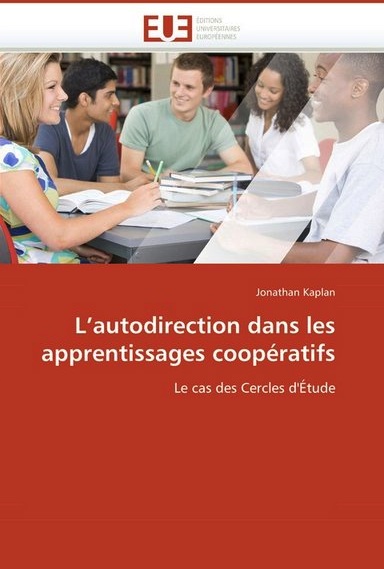
This research is the first ever recorded scientific research on Study Circles in French. It is also unique in that that it explores the learning processes taking place in Study Circles. The theoretical framework from which the research stems is Self-Direction in Learning. More specifically, metacognitive processes of regulation of the learning were studied. The research tested the effects of varying degrees of presence, or absence, of the Study Circle facilitator (sometimes referred to as the Study Circle leader) on learners’ self-direction. They revealed some compelling differences, but foremost was the extent to which learners collectively direct their learning. Here’s a citation from the thesis abstract:
This thesis aims to shed light on self-direction in learning within its collective dimension. Study Circles have been used for over one hundred years, mainly in Sweden. Studies on this model in French are lacking. One goal for this research is to fill in on this deficiency. We have initiated 11 Study Circles in France, in naturalistic settings, on different themes and within different contexts, to study the effects of a varying presence or absence of a Reference Person to the Field of Study (RPFS) […] This research reveals that contrary to what one may expect, the presence of a domain specific specialist (teacher or instructor) did not favor a perception of quantitatively greater or more diversified learning, or greater satisfaction. Lastly, it is suggested to extend the concept of self-direction to include a collective dimension. This co-direction, borne by a cooperative and democratic quality of relations, is the basis for communal agency.
The research Jonathan Kaplan conducted on Study Circles is published by EUE and is available on the publisher’s online store, at Amazon (paid link) or through several other major outlets.